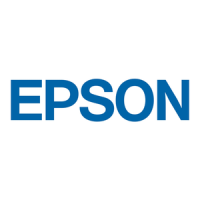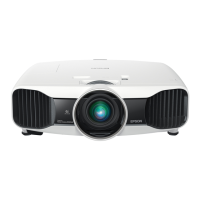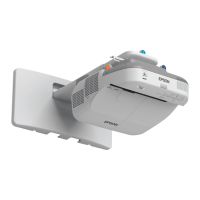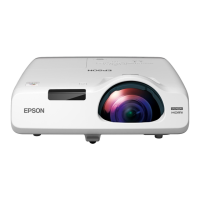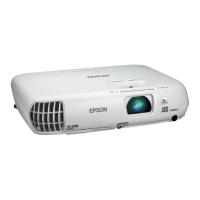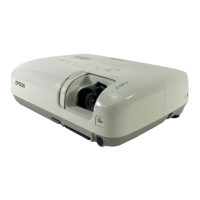Do you have a question about the Epson PowerLite 5000 and is the answer not in the manual?
Critical safety warnings for operating the projector, including eye protection and electrical hazards.
Details on operating the projector using the remote control and troubleshooting IR interference.
FCC compliance details for US users regarding radio frequency energy and interference.
Compliance statement for Canadian users regarding interference-causing equipment.
Tips and features to maximize the use of the projector for presentations.
List of optional accessories available to enhance projector functionality and their part numbers.
Overview of the manual's structure and content, guiding users through projector setup and operation.
Essential safety guidelines for setting up and using the projector to prevent injury or damage.
Information on contacting EPSON support, dealers, and accessing online resources for assistance.
Details on accessing EPSON's online resources like website, FTP, BBS, and Fax-on-Demand.
Information regarding the projector's compliance with ENERGY STAR guidelines for energy efficiency.
Instructions for unpacking the projector and verifying all components are present.
Details on optional or necessary components required for specific connections and setups.
Step-by-step guide for physically setting up the projector, including placement and orientation.
Guide for connecting the projector to a desktop IBM or compatible PC, including cable connections.
Instructions for connecting the projector to a laptop IBM or compatible PC, covering video and data cables.
Steps for connecting the projector to Apple Macintosh desktop computers, including adapter usage.
Instructions for connecting the projector to Apple PowerBook laptops, emphasizing video-out capability.
Guide for connecting VCRs, camcorders, or other video devices to the projector.
How to connect audio output to external sound systems for amplified audio.
Identifies the main parts and features of the EPSON PowerLite 5000 projector.
Steps for powering the projector and connected equipment on and off in the correct sequence.
Detailed instructions on how to power the projector on and off using its controls.
Guide on how to adjust focus, zoom, and physical position for a clear screen image.
Explanation of the Auto button's function for automatic image adjustment from computer sources.
How to use the Resize button to adjust image scaling for different computer resolutions.
Overview of methods for controlling projector functions via remote or control panel.
Detailed guide on operating the projector using the infrared remote control.
Instructions on using the physical buttons on the projector for control and adjustments.
Explanation of the meaning of various power and lamp indicator lights on the projector.
Describes the status of the power indicator light and its meaning.
Explains the status of the projection lamp indicator and what it signifies.
Steps to display and navigate the projector's main menu system using control panel or remote.
Guide on how to modify settings within the projector's menus using the control panel or remote.
Adjustments for brightness, contrast, sync, tracking, color, position, and mouse/COM port settings.
Adjustments for brightness, contrast, saturation, tint, and video signal mode for video sources.
Settings for volume, tone, and spatializer effects for audio output.
Options for screen prompt, rear projection, ceiling mount, view change, language, and lamp status.
Allows selection of special features like zoom, preview, and strobe effects for the remote control.
Guides for installing ELP Link II software on Windows and Macintosh, including cable connection.
Details on using Line, Ellipse, Square, Bar, Stamp, Change Cursor, Clear Screen, and Macro Key functions.
Methods for assigning functions to Effects buttons and specifying detailed options for each.
Adjusting computer and video display settings like brightness, contrast, and sync via software.
Configuring audio volume, tone, spatializer, and option settings like prompt and mount.
Customizing zoom, preview, strobe, and changing test patterns via software.
Adjusting color temperature and image gamma for optimal display quality.
Procedures for cleaning the lens and projector case, and replacing parts like the lamp.
Steps for cleaning the projector's air filter to maintain proper ventilation and prevent overheating.
Guide on when and how to replace the projector lamp, including safety precautions.
Diagnosing and resolving problems related to projector operation and warning lights.
Troubleshooting common issues with screen image display and audio output.
Overall projector specs: display type, resolution, size, distance, audio, aspect ratio, zoom.
Details on projector lamp, mechanical dimensions, and electrical requirements.
Operating and storage environmental conditions, including temperature and humidity.
| Resolution | XGA (1024x768) |
|---|---|
| Display Technology | 3LCD |
| Projection Size | 30" - 300" |
| Lamp Type | UHE |
| Input Terminals | VGA, S-Video, Composite Video |
| Output Terminals | VGA, Audio |
